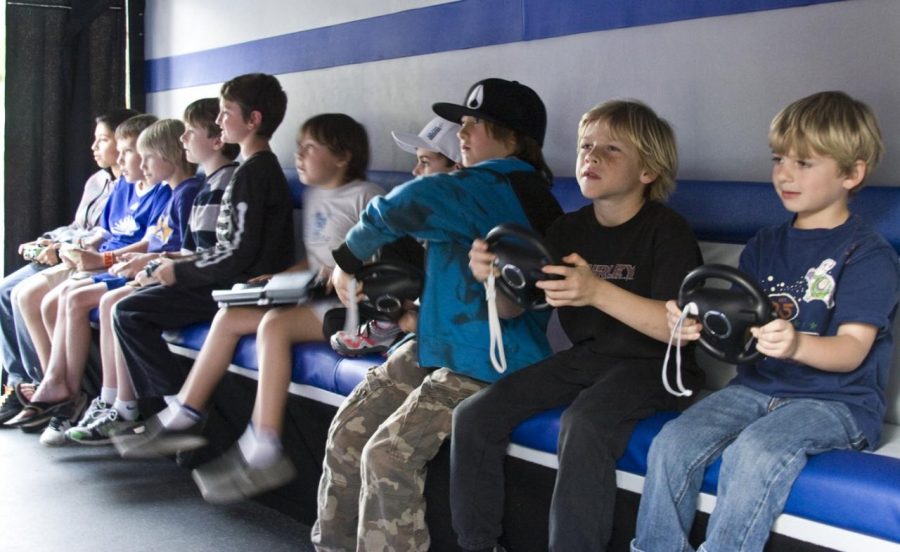Do video games really promote violence? No.
March 5, 2018
From the jumping Mario game of the 80s to the realistic high graphics of today, one thing is certain. Video games have come a long way.
With increased reports of violent behavior and school shootings, video games are often blamed for the hostile urges and mildly aggressive behavior among teenagers.
A report by the U.S. Secret Service and U.S. Department of Education examined 37 incidents of targeted school violence between 1974 and 2000.
Of the 41 attackers studied, only 12 percent showed interest in violent video games.
The others were interested in violent movies and violent books, including those interested in their own violent writings.
A 2015 peer-reviewed study published in Psychiatric Quarterly also found that playing violent video games had no impact on hostility levels in teenagers.
The results showed that hostility levels neither increased nor decreased after playing a violent video game.
Other studies have shown that higher sales of violent video games were related to a decrease in crime, especially violent crime.
So, the causal link between video game violence and real-life violence seems flawed and unrelated.
In contrast to belief, playing video games increases moral sensitivity and engages people, keeping them off the streets and away from possible trouble.
Video games could act as an outlet to satisfy the violent urges in teenagers safely and make them aware of the possible consequences.
Video games test and help to improve hand-eye cordination, which pushes many young people to develop life-long skills.
Rationalization and strategy game play help players make better decisions.
Dedication to a particular game is important, because that can transfer over into a determined work ethic.
A study published by Computers in Human Behavior discovered that young people exposed to violence video games displayed adequate social behavior and civic engagement, possibly due to the team-oriented multiplayer options in many of these games.
Being able to properly communicate is important, and for many young people, video games are their first taste of group communication.
Fantasy not only develops creative thinking, it’s also a way for children to deal with situations and problems that concern them.
People tend to believe that relieving stress in aggressive ways makes them an aggressive person.
However, blogger and editor-in-chief at Today’s Parent, Sasha Emmons, disagrees.
In an article she wrote, Emmons says, “By age seven, children can distinguish fantasy from reality and can tell the difference between video game violence and real-world violence.”
We assume that “Counter Strike” players would think about guns and shooting people. We assume those people are violent.
We start stereotyping and assuming things.
However, newer studies have failed to find much evidence of a connection between brutal games and even minor aggressive acts, let alone extreme violence.
In my view, blaming violent video games as the answer to all the violent crimes happening today seems wrong.
It is also equally important to take a lot of caution and time to think before placing blame on any particular thing for violent behavior.




John Smith • Mar 5, 2018 at 1:02 pm
Would u like to get paid for testing video games. http://e977aev4fcbs8x8abdoio1aycx.hop.clickbank.net/